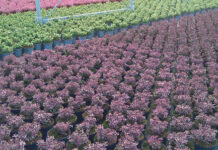Strict EU-wide rules for organic food and drink aim to bolster consumer trust and promote Europe’s organic farmers, the care they take of the land, biodiversity and high standards of animal protection. Currently some 2% of the foods bought by EU consumers are certified organic, with 200,000 farms (2% of the total) counting as organic.
Now, the Commission is looking at ways to improve the EU’s organic rules and boost demand even more. As part of this process, we want to hear from you on:
- simplifying the rules – while ensuring standards are not watered down
- ensuring genetically modified organisms (GMOs) – which are prohibited under the rules – do not accidentally enter the organic food chain
- promoting organic products through labelling rules (especially the compulsory use of the European logo on all EU-produced organic products)
- updating the Commission’s 2004 action plan for developing organic farming
- tightening controls, to prevent fraud
- addressing shortcomings in current import rules.
The online consultation is open until 10 April 2013. The comments received will inform decisions on the next steps to be taken. The Commission plans to table proposals for how the rules can be changed around the end of 2013.
Currently foods may only be called organic if at least 95% of their agricultural ingredients are organic. Organic farming emphasises environmental protection and animal welfare. Farmers must avoid or drastically reduce their use of synthetic chemicals such as fertilisers, pesticides, additives and medicines.
For imported food to be recognised as organic, the producing countries’ organic rules and certification authorities must be recognised as equivalent to EU standards.
When using the EU organic logo, manufacturers must also include the reference number of the certification authority and the names of the producer, processor or distributor who last handled the product. National organic certification marks may also be used alongside the EU logo.
Source: Envirocentre – Your Opinion Needed on How Best to Encourage Organic Production in Europe






